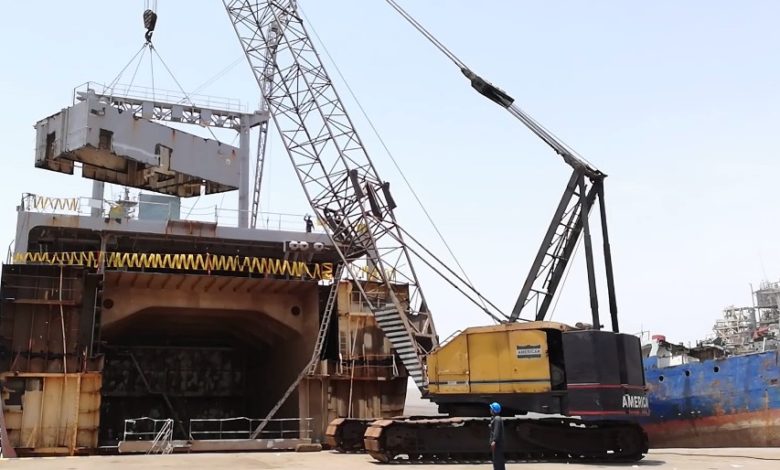Green recycling isn’t enough

Carl Martin Faannessen, CEO of Manila-based crewing specialist Noatun Maritime, on just how far behind shipping’s thinking is when it comes to eliminating pollution.
In 1992, Volvo showed off the ECC – the Environmental Concept Car. While most of the focus was on its hybrid propulsion system (gas turbine and batteries), as well as extensive safety features, little attention was paid to the “E” in its name and how deeply thought through it was.
The car was eminently recyclable. It marked what effectively became the turning point for the automotive industry from an environmental perspective. The car’s focus on sustainability and pollution reduction – or elimination – was unprecedented. The stated ambition at the time was to produce a car that had as close to a zero-impact on the planet as possible, and to strive for a clean zero.
Since then, Toyota went hybrid and they were followed by almost every other auto company on the planet. Many tried fully electric, but it took Tesla to make it common. There is now a number of fully-electric manufacturers and even the stalwarts are getting into the game (fully electric Mercedes S-class, anyone?). They don’t talk about the recyclability, yet, but all are aware that recycling will be necessary.
As part of any contract to build a vessel, the shipyard should also offer to dismantle and recycle it
And then we look at shipping and our challenge to win the hearts and minds of the generation now entering universities and the workforce. Our current debate is on zero-carbon propulsion, and it’s at least a start. But it’s not enough.
If there are people in our industry talking about going to a clean zero for a vessel, also taking into account the construction and recycling, I’ve yet to hear it. The environmental impact of the steel and equipment that go into a ship is significant. Owners today should be aiming for zero emissions from the moment the vessel is launched. But that is only the first step.
Owners need to take into account the impact of sourcing and producing every component that goes into the vessel, as well as the impact of ship breakage. If an owner does not order a ship, that’s thousands of tons of steel that does not need to be produced, an even higher weight in ore that does not need to be extracted, transported and refined. Not to mention the impact of paints, cabling, machinery, etc. The environmental footprint of a vessel is massive, even before it starts sailing.
As part of any contract to build a vessel, the shipyard should also offer to dismantle and recycle it just like Apple does with its products: You hand in your old one and get a discount towards a new one, and you know the old will be recycled properly. All in an effort to minimise the environmental impact of the industry.
If we don’t get ahead of it, activists and regulators eventually will set the agenda. Green recycling isn’t enough.
We ignore this at our peril. Talk to the below-20s today and ask them about our environmental work and image. It’s abysmal, and a zero-emission ship is only the beginning. We have yet to launch the ship equivalent of the Volvo ECC, and we have had 30 years to do so. Somewhere out there, there must be a yard and an owner who are looking at this? We can but hope.

Sound like you have been in shipping, but in your own bubble.
Comparing large ships to Apple products ! Volvo came with an prototype in 1992, so what is the relation to shipping or ships.
So you ordet a ship today and want to scrap it in 30 years or so. Who knows if the shipyards exists, or more importantly have the same owners. Most likely they will change Company setup in order to avoid such guarantees. Doubtful, then your contract will not be worth much.
You can not compare cellphone and large ships. Like you said a young 20s something could express such, but would expect more from an shipping CEO.
Thanks for this. All the items you list are true, partially, today. But only partially. Scope 3 emission reporting will come our way and will force new business models and -behaviors.
There are large shipyards (Imabari, Keppel and more) who have been around longer than most companies. They could do what I propose.
Yes, the Owner of the newbuilt beauty is unlikely to be the same one sending her to scrap – but that is not the point. Same with a phone, people sell them too. Apple doesn’t care if you are the original buyer, they give the discount to the person returning the old phone. The point is that whoever delivers the vessel back to the yard gets the discount. Incidentally, this would support the business of well-run yards and be a disincentive for the less well-run ones.
The point about the ECC is simple: We’ve never done anything similar, instead we do misguided greenwashing. How many of the new LNG-ready ships have anything onboard to support LNG-propulsion apart from an engine that can burn LNG whether the Owner wants it to or not? Where is the ship that tries to do what the ECC did 30 years ago?
This is still a narrative we can control, but very few of us try. Scope 3 emissions reporting will come. Looking at where we are today as an industry, I can only say brace for impact.